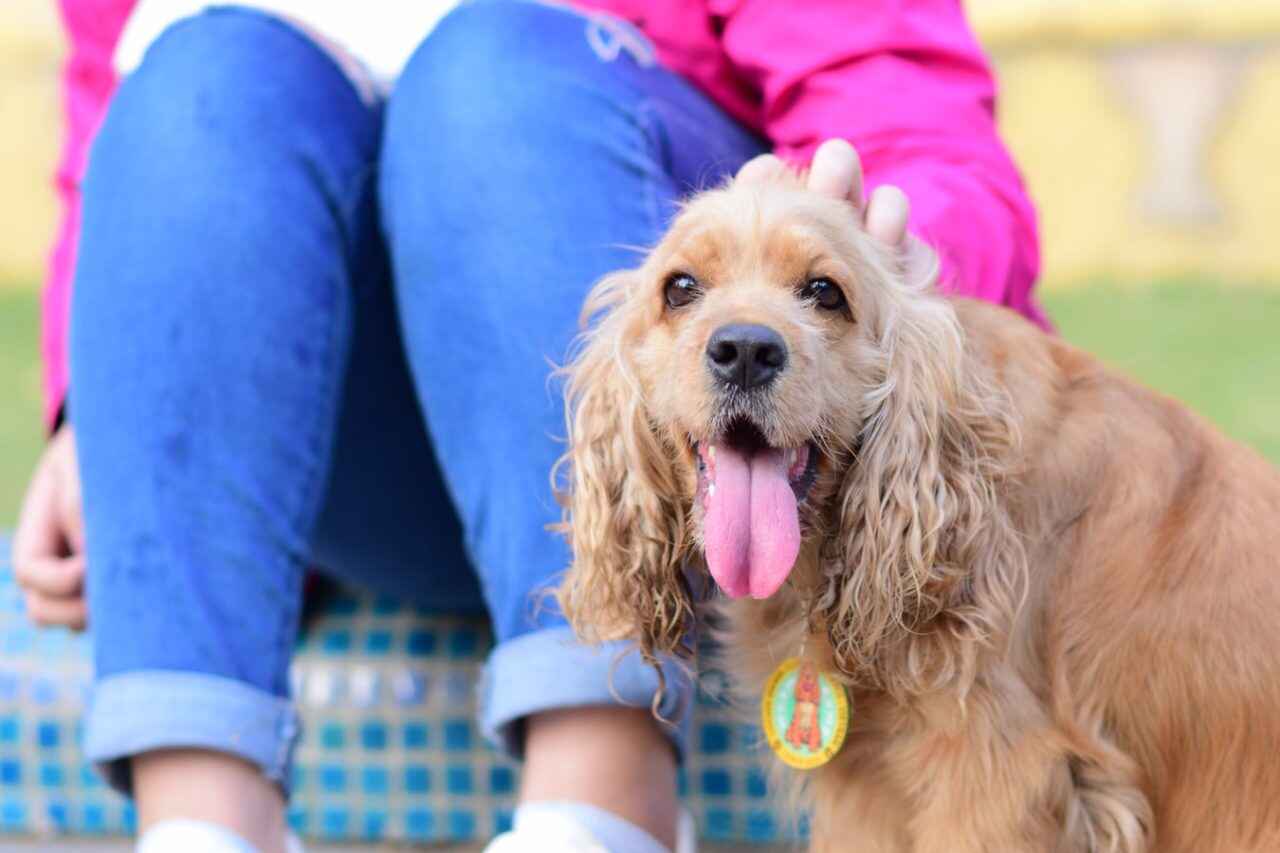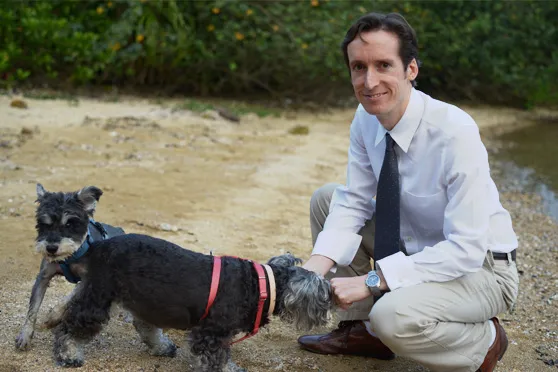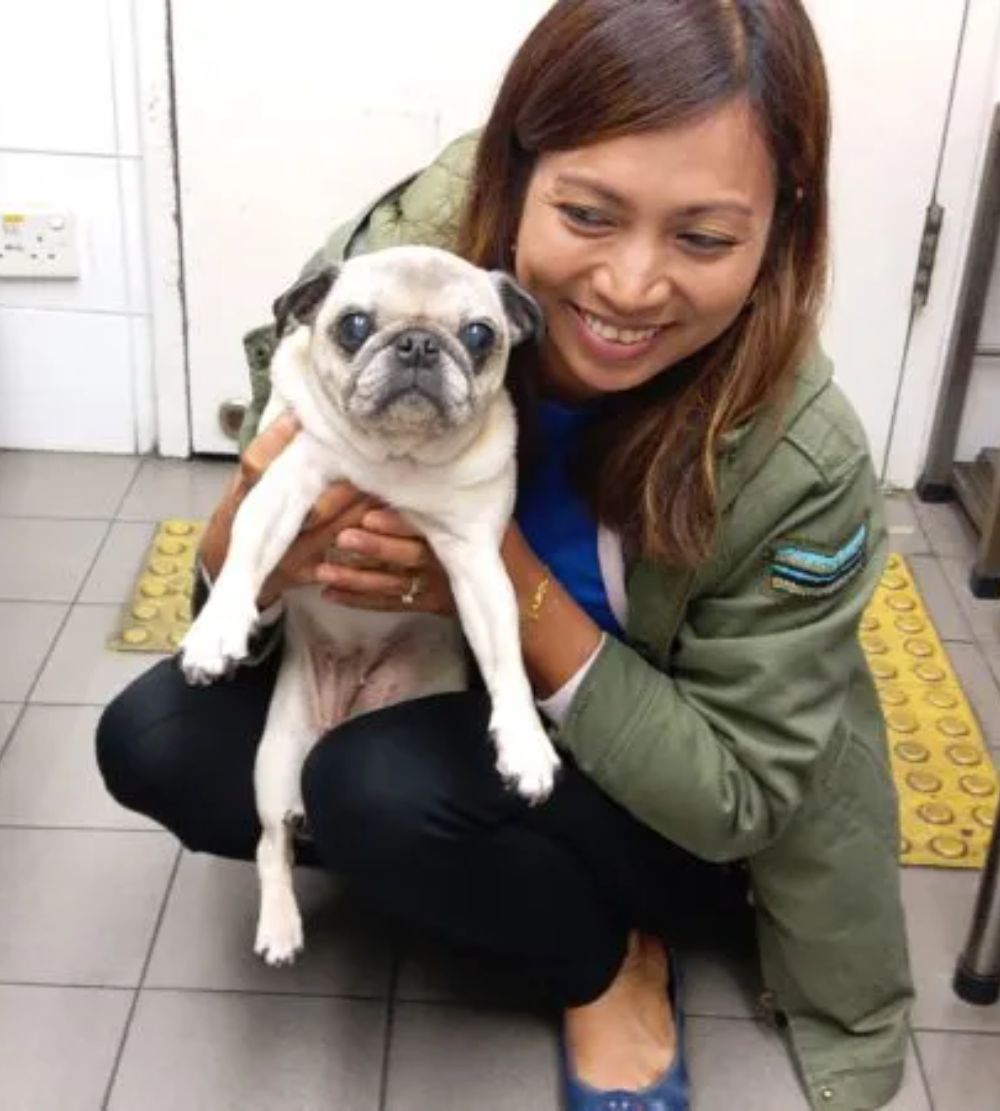Cat and Dog Relocation & Shipping to Vietnam
Everything You Need to Know About Moving a Pet to Vietnam
If you’re considering moving to Vietnam and can’t bear the thought of leaving your beloved cat or dog behind, we have good news for you – it’s absolutely possible to take your pets with you! In fact, if you’re planning to stay in Vietnam for an extended period, it’s highly recommended to bring your furry companions along.
They’ll miss you dearly if you leave them behind, and sharing this new adventure with them will only enhance your experience and create lifelong memories. However, there are several important factors to consider when travelling to Vietnam with your pets, so it’s crucial not to rush into anything. Let us guide you step by step through the process of pet relocation to Vietnam.
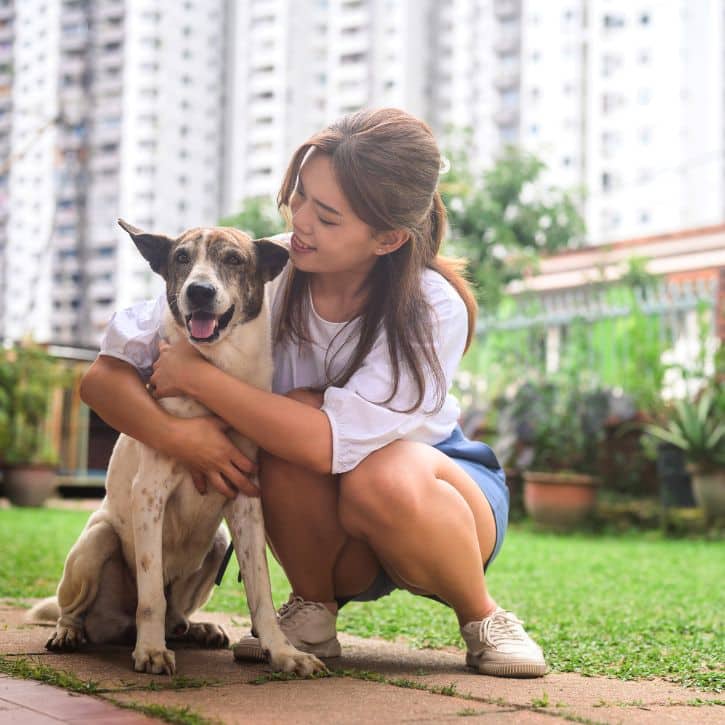
Will Flying Stress My Pet Out?
Unfortunately, the process of flying can naturally cause stress in animals, as it’s a new and unfamiliar experience for them. However, there are measures you can take to minimise their stress levels:
- Ensure they have enough space to move about comfortably.
- Provide them with access to water throughout the journey.
- Bring something familiar, such as their favourite toy or blanket, to provide a sense of comfort and security.
When it comes to travelling on airlines to Vietnam with your pets, it’s important to note that different airlines may have varying requirements. It’s advisable to seek advice and guidance to ensure compliance with the specific airline’s regulations.

Microchipping in Vietnam
In many countries, microchipping your pet is essential before travelling. This allows authorities to identify your pet and trace their origin in case they become lost or encounter any travel restrictions.
Similarly, for relocating pet to Vietnam, microchipping is required for identification purposes and to comply with the country’s legal procedures. While microchipping can be a costly process, it’s highly recommended as external identifiers such as collars or tags can be removed or lost. Additionally, the microchip number must be recorded on the Health Certificate form.
Ensuring Healthy Pets in Vietnam
As with any country, Vietnam requires pets to have a clean bill of health before entry. Dogs must receive rabies and parvovirus vaccines, and dogs, cats, and ferrets must undergo tick and tapeworm treatment at least seven days before travelling. It’s also advisable to have dogs vaccinated against distemper, leptospirosis, and hepatitis, as these diseases are prevalent among dogs in Vietnam.
Similarly, cats should be vaccinated against feline distemper and calicivirus during the pet relocation. If you have a smaller animal, a health check from a certified veterinarian prior to travel is necessary. Unhealthy-looking animals may be stopped at the border and denied entry into Vietnam. After your pet receives all the required vaccinations and passes a thorough health check, your vet can provide a health certificate, which must be dated no more than seven days before your travel date. Remember to carry this certificate with you when entering or leaving Vietnam.
Other Important Documents For Pet Relocation To Vietnam
In addition to your pet’s health certificates, there are other documents you’ll need to ensure a smooth pet relocation to Vietnam.:
Import Documents for Pets in Vietnam
If you’re travelling with only one dog or cat, Vietnam does not require an import permit. However, if you have more than two dogs or cats, or more than three of any other animal, further investigation and documentation may be necessary.
Pet Passports
Just like humans, pets travelling to Vietnam require a passport or official paperwork. Having a dedicated vaccine card or passport for your pet allows the receiving country to verify their health status easily. It also exempts them from lengthy quarantine periods in Vietnam, enabling them to travel to your intended destination promptly. The passport or vaccine card provides authorities with important information about your pet’s identity, ownership, and travel history. Your vet will assist in completing the necessary documents, and the passport will remain valid for the duration of the rabies vaccine.
CITIES
Vietnam prohibits the import or export of protected species, which is commendable. However, if you have an exotic pet such as reptiles or birds, you’ll need to demonstrate that you’re not travelling with a protected species. In such cases, an additional permit from the Convention on International Trade in Endangered Species (CITES) may be required. This permit verifies that your animal is kept as a pet and not intended for commercial trade, and that it does not belong to an endangered species. It’s important to note that if you possess an endangered species as a pet, such as being part of a rescue or rehabilitation program, travelling to Vietnam may not be possible. Consider this aspect carefully before making your decision.
Finding the Best Pet Relocation Specialist
Organising all these documents, along with the stress of packing up your home and the anxiety of starting a new life in a different country, can be overwhelming. Fortunately, Ferndale can assist you with your pet relocation to Vietnam. We at Ferndale Kennels have extensive experience providing professional and reliable pet relocation services. By relying on a company that is well-versed in the process and understands the documentation requirements, you can significantly streamline the pet relocation process. Consider reaching out to them for support instead of managing everything yourself.
With proper planning, preparation, and adherence to the regulations, you can make the journey to Vietnam a smooth and enjoyable experience for both you and your furry companions. Embrace the adventure and create lasting memories as you explore Vietnam together.
Travelling with Pets to Vietnam: Modes of Transportation
When it comes to travelling with your pets to Vietnam, you have a few options for transportation. The most common methods are flying and, if feasible, travelling by land. If you choose to fly, it’s important to research airlines that allow pet travel and have suitable policies for transporting animals. Each airline may have specific requirements, such as the type and size of carrier allowed, documentation needed, and restrictions on the number of pets per flight. Consulting with experts or pet travel agencies can help you navigate these requirements and ensure a smooth journey for your furry friends.
If you opt for land transportation, such as driving or taking a ferry, it offers a different set of considerations. Make sure to plan your route, taking into account pet-friendly accommodations and rest stops along the way. It’s crucial to prioritise your pets’ comfort and safety during the journey, ensuring they have proper ventilation, regular bathroom breaks, and access to food and water.
Familiarising Pets with the New Environment
Moving to a new country like Vietnam can be a significant adjustment for your pets. To ease their transition, take some time to familiarise them with the new environment gradually. Once you arrive, allow them to explore their new surroundings at their own pace, both indoors and outdoors if it’s safe to do so. Establish a routine that incorporates their regular feeding, exercise, and playtime. Providing them with familiar items from your previous home, such as their bed, toys, or blankets, can also help create a sense of security and comfort.
Finding Pet-Friendly Facilities and Services in Vietnam
Vietnam is increasingly becoming a pet-friendly country, and you’ll find a growing number of facilities, services, and activities catering to pets and their owners. From pet-friendly hotels and accommodations to restaurants, cafes, and parks that welcome pets, you’ll have options to enjoy outings and socialise with other pet owners. Research local veterinary clinics, pet grooming salons, and pet supply stores in your area to ensure you have access to the necessary resources to care for your pets’ health and well-being.
Adjusting to Local Regulations and Cultural Norms
It’s essential to familiarise yourself with the local regulations and cultural norms related to pet ownership in Vietnam. Understand the leash laws, public behaviour expectations, and any restrictions on pet access to certain areas. Being a responsible pet owner means respecting these regulations to ensure a harmonious relationship with the local community.
The Importance of Patience and Adaptability
Moving to a new country with pets can be a complex process, requiring patience and adaptability. Your pets may experience some initial stress or anxiety during the transition, but with your love, care, and attention, they will gradually settle into their new life in Vietnam. Stay observant of their behaviour, monitor their health, and consult with local veterinarians if needed. Building a support network of fellow pet owners or joining online communities can provide valuable insights, advice, and a sense of camaraderie.
Remember, the journey of relocating with your pets to Vietnam is not only about the logistics; it’s a shared adventure and an opportunity to strengthen the bond with your furry companions. With proper planning, preparation, and a positive mindset, you can create a safe, comfortable, and fulfilling experience for both you and your beloved pets in your new Vietnamese home.
Click Here For Shipping Enquiry
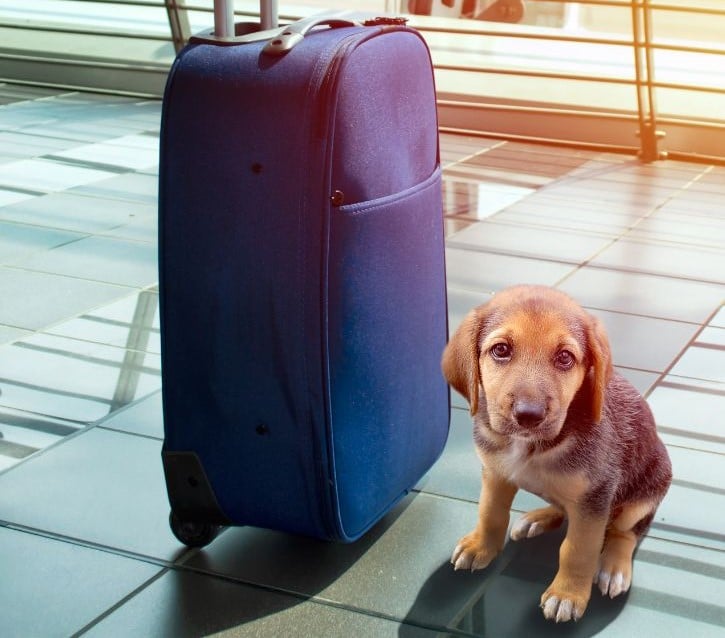
Frequently Asked Questions
Can I bring my pet to Vietnam if it's not a dog or a cat?
Yes, you can bring other pets to Vietnam, but you need to check specific regulations and requirements for each type of animal. Some exotic pets require additional permits or documentation.
What vaccinations are mandatory for pets entering Vietnam?
Dogs must receive rabies and parvovirus vaccines, while cats should be vaccinated against feline distemper and calicivirus.
Is microchipping necessary for bringing pets to Vietnam?
Yes, microchipping is essential for identification purposes and compliance with Vietnam's regulations. It helps authorities trace your pet's origin if they get lost and is required for completing health certificates.
Is quarantine require for the pet entering Vietnam?
Quarantine is not required in Vietnam for pets with proper documentation.

